Category : Bangladesh
Aug 20, 2025 | Afghanistan, Announcements, Arts Program, Associates, Bangladesh, Faculty, Fellows, In Region, India, Myanmar, Nepal, News, Pakistan, Sri Lanka, Students
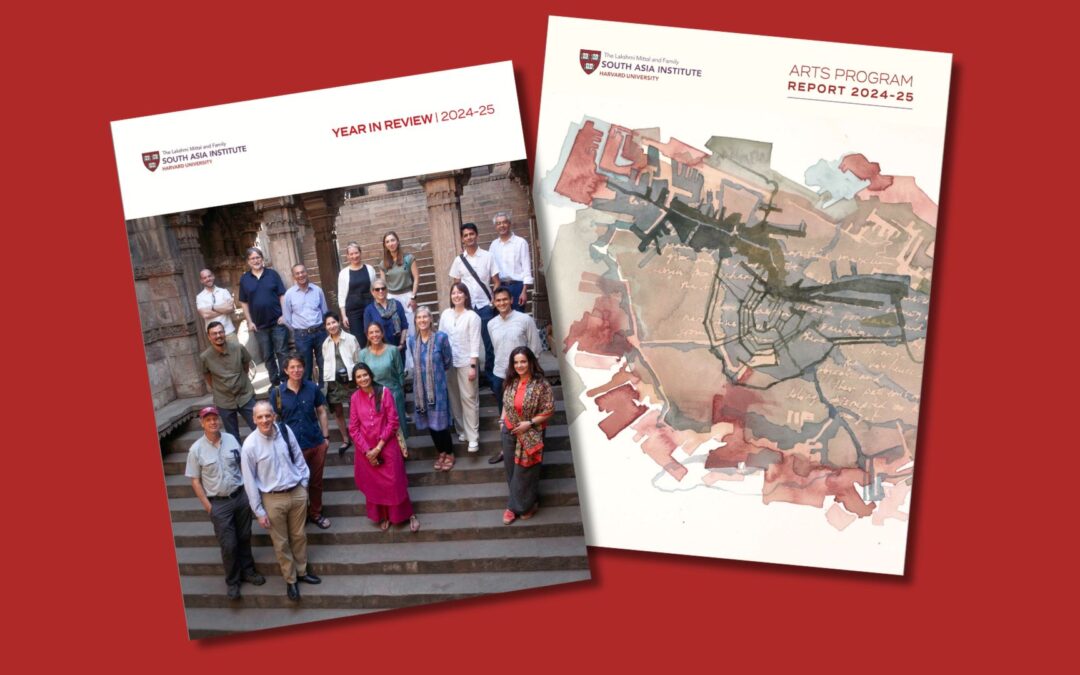
The Mittal Institute is excited to announce the release of the 2023–24 Year in Review and 2023–24 Arts Program reports. Like every year, the comprehensive Year in Review Report includes updates on all major faculty-led programs, lists awards and fellowships, highlights the work of students, student organizations, and scholars, and summarizes events and other achievements. The Arts Program Report highlights the incredible impact and accomplishments of the Mittal Institute’s various arts initiatives, which include fellowships, exhibitions, and events. Both reports offer valuable insights into the institute’s mission of connecting Harvard with South Asia.
May 13, 2025 | Bangladesh, Community, In Region, News, Visiting Scholars

The Mittal Institute welcomes Professor Nasir Uddin, a Visiting Scholar from the Department of Anthropology at the University of Chittagong, Bangladesh, where he is a senior faculty member. He is a cultural anthropologist who will be working on campus through mid-summer on a theoretical, comparative, and ethnographic understanding of the “politics of genocide denial.” We spoke with Professor Nasir Uddin to learn more about his research.
Mar 25, 2025 | Announcements, Bangladesh, Community, News, Students
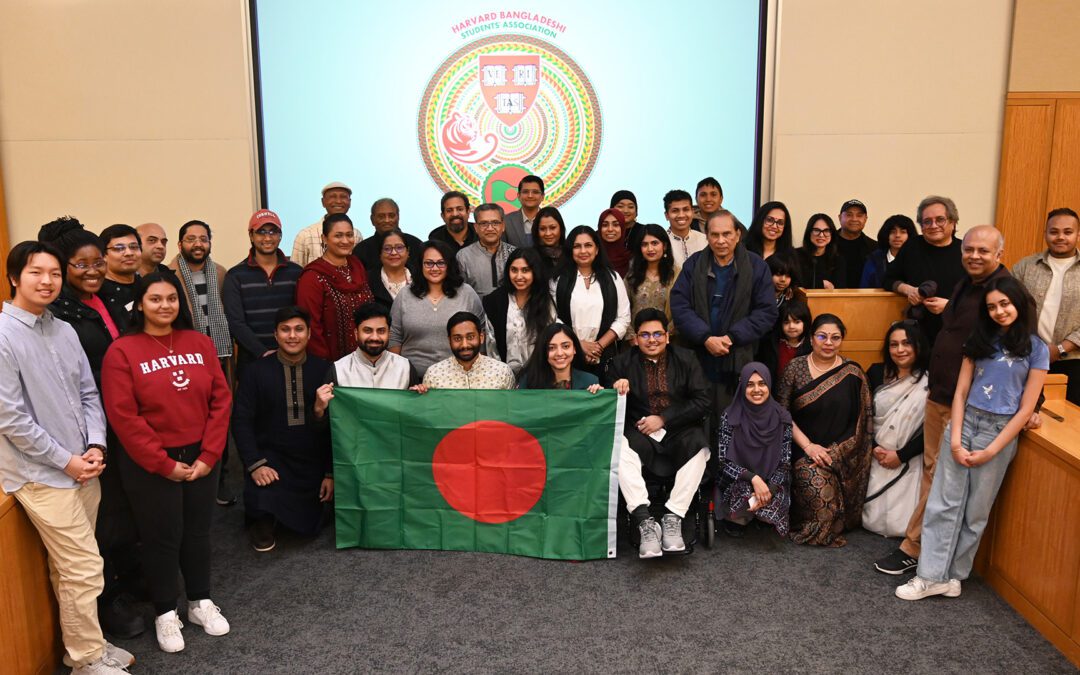
This academic year, the Harvard Bangladeshi Students’ Association (HBSA) was founded as a University-wide recognized student organization to build community, amplify Bangladeshi voices, and create spaces for cultural celebration, professional development, and advocacy. The Mittal Institute spoke with president Moomtahina Fatima, vice-president Khondoker Nazmoon Nabi, and treasurer Safwan Hossain about the mission of their group, their inaugural event on February 21, and what role Harvard students from Bangladesh and other diaspora members can take in engaging on challenges that Bangladesh faces today.
Mar 18, 2025 | Bangladesh, News

The State of Architecture in South Asia series welcomes Professor Adnan Morshed for its next March 27 installment on “Good Density as Urban Justice.” Prof. Morshed, Professor at the School of Architecture and Planning at the Catholic University of America, is a practicing architect and architectural historian with an academic focus on the history and theory of modern architecture and urbanism. We spoke with Prof. Morshed in advance of his talk, which will explore urbanization in Bangladesh with a focus on population density.
Dec 3, 2024 | Afghanistan, Announcements, Arts Program, Associates, Bangladesh, Faculty, Fellows, In Region, India, Myanmar, Nepal, News, Pakistan, Sri Lanka, Students
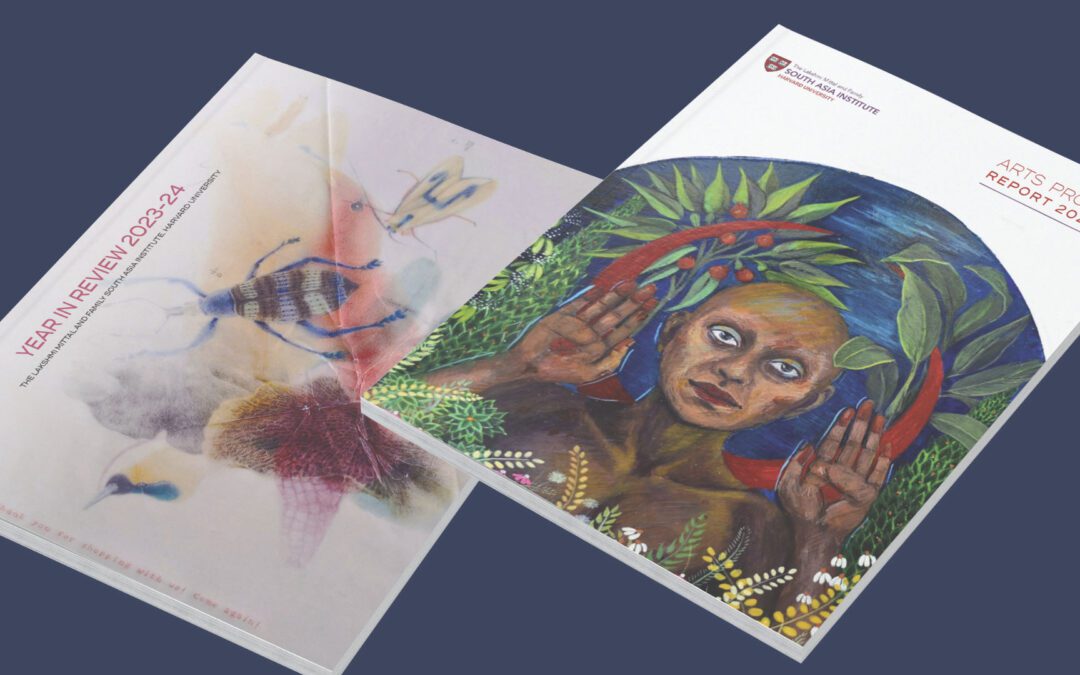
The Mittal Institute is excited to announce the release of the 2023–24 Year in Review and 2023–24 Arts Program reports. Like every year, the comprehensive Year in Review Report includes updates on all major faculty-led programs, lists awards and fellowships, highlights the work of students, student organizations, and scholars, and summarizes events and other achievements. The Arts Program Report highlights the incredible impact and accomplishments of the Mittal Institute’s various arts initiatives, which include fellowships, exhibitions, and events. Both reports offer valuable insights into the institute’s mission of connecting Harvard with South Asia.
Nov 18, 2024 | Associates, Bangladesh, Climate, News
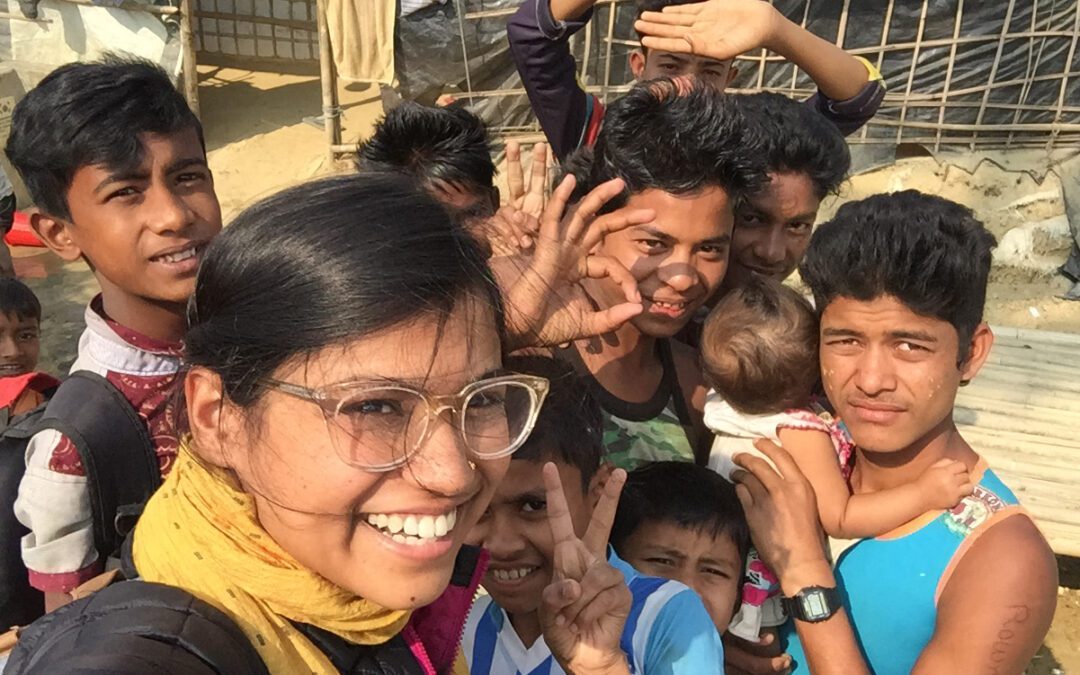
Dr. Fatima Zahra, a Mittal Institute Associate, spearheads research at the intersection of human development, labor markets, and artificial intelligence with a focus on the future of learning and work. Several of her projects look at Bangladesh, where she is originally from, including her studies on how climate change impacts child development and what employment barriers Rohingya fathers face in refugee camps. The Mittal Institute spoke with her about her motivation and approach to study climate change in Bangladesh and how socioeconomic and political factors are essential to understanding its impacts.
Nov 5, 2024 | Announcements, Bangladesh, Climate, Faculty, News, Pakistan
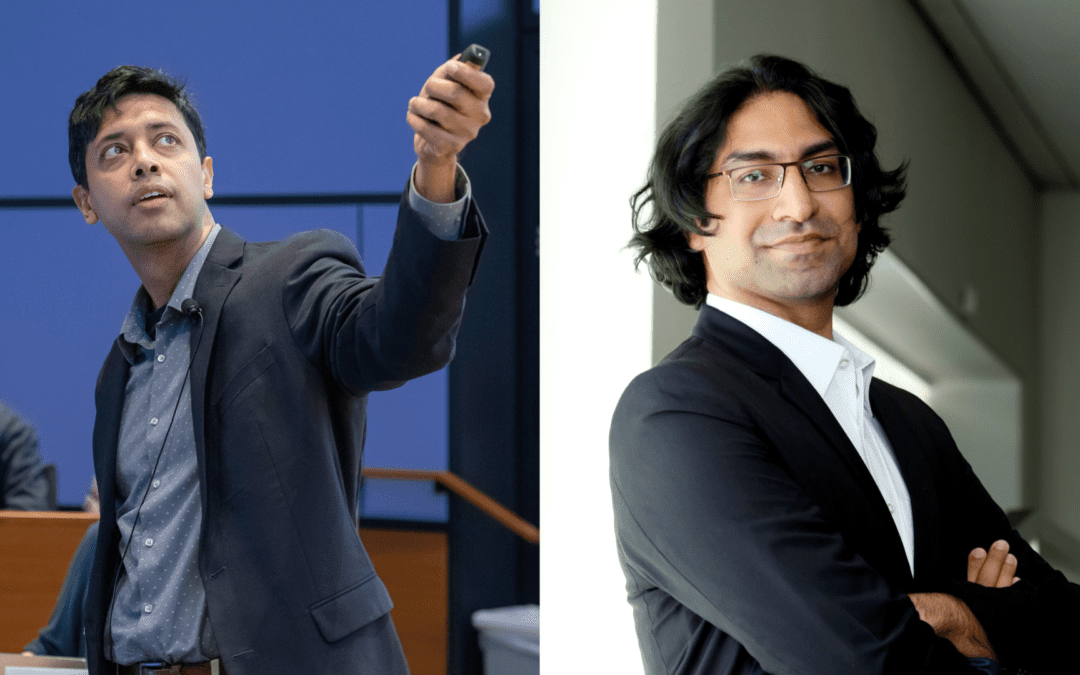
In 1970, East Pakistan (now Bangladesh) was hit by a cyclone that killed 300,000 to 500,000 people. Prof. Mushfiq Mobarak, Yale University, and Prof. Sultan Mehmood, New Economic School of Moscow, provide empirical evidence that the cyclone’s devastation and the Pakistani government’s “callous response” to it were instrumental in galvanizing support for an independence movement. The two authors share their work in this Q+A ahead of a November 15 Joint Seminar on South Asian Politics.
Apr 16, 2024 | Announcements, Bangladesh, Climate, News
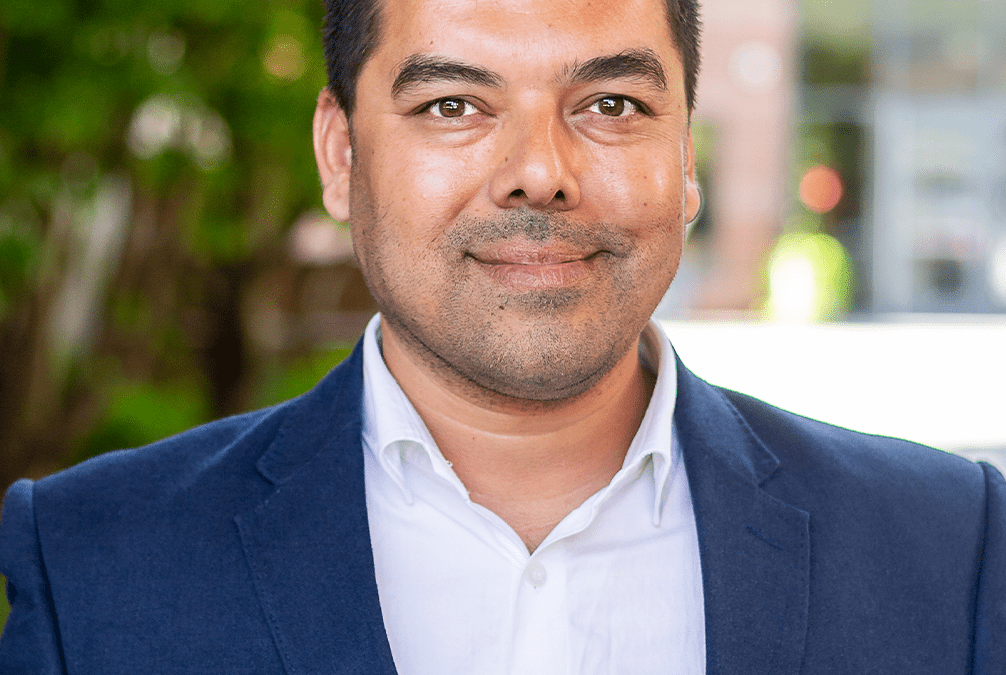
Nazmul Haque, a current Mason Fellow in ClassACT HR73’s Benazir Bhutto Leadership Program at the Harvard Kennedy School, has a long history of developing public-private partnerships in response to climate change in his home country of Bangladesh. His experience was a case study for a recent symposium, “Climate Change, Public-Private Partnerships, and Social Equity: Lessons from Bangladesh” – also co-sponsored by the Weatherhead Center and the Salata Institute – in which Harvard practitioners and professors gathered to examine and enlarge upon the examples offered by Nazmul’s career. We spoke with him about his commitment to sustainability, and what the symposium meant for him.
Apr 3, 2024 | Announcements, Bangladesh, Climate, Faculty, News
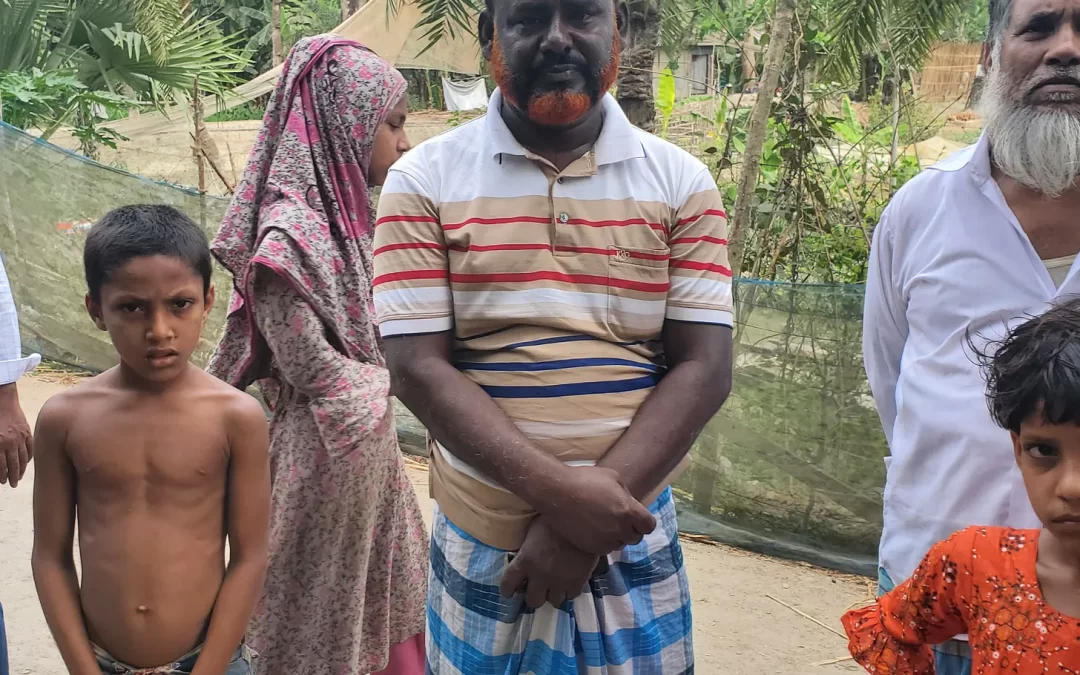
This spring break, Prof. Susan Crawford, John A. Reilly Clinical Professor of Law, set out to Bangladesh on a Mittal Institute-supported research experience.
Feb 13, 2024 | Bangladesh, Climate, In Region, News
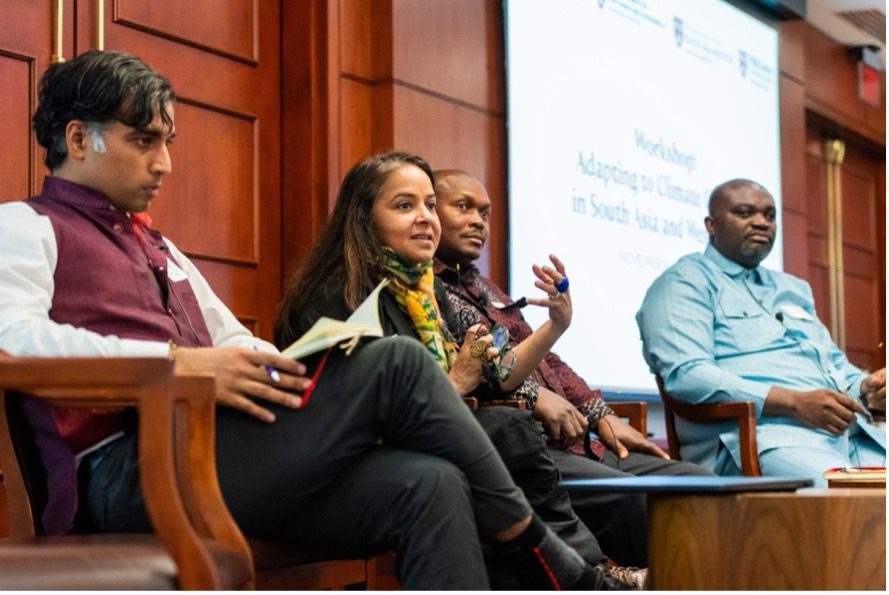
Sabina Faiz Rashid is a medical anthropologist and currently Professor and Chair of Health and Poverty at BRAC James P Grant School of Public Health in Dhaka, Bangladesh. She is also the principal in-region investigator of Mittal Institute’s CLIMATE ADAPTATION IN SOUTH ASIA project, an interdisciplinary project that seeks to advance climate adaptation research and implementation at the household, community, state and federal levels in South Asia, particularly in the context of climate-driven migration.
Feb 7, 2024 | Bangladesh, Faculty, News

“A solution that can’t be applied,” says Professor Richard Cash, Senior Lecturer on Global Health at the Harvard Chan School of Public Health and LMSAI Steering Committee member, “is really no solution at all.” He shares more on his cholera dehydration life-saving solution that he and his colleagues first developed in Bangladesh — a solution that is credited with saving tens of millions of lives worldwide. Their oral rehydration therapy (ORT) is a mix of salt, sugar, and water and has helped patients return to their hydrated state as quickly as they had sickened.
Mar 1, 2023 | Afghanistan, Bangladesh, Community, Faculty, Fellows, Graduate Student Associates, In Region, India, Myanmar, Nepal, News, Pakistan, South Asia in the News, Sri Lanka, Students

Calling all Harvard photographers! The Mittal Institute seeks images of South Asia for our inaugural PHOTO CONTEST. Deadline Extended to 5pm EST on Friday, March 10 in the following categories: CATEGORIES: 1. Nature + Landscapes 2. People 3. Urban Landscapes and...












